Health Literacy
Breadcrumb
Discover Health Literacy
Because it can be challenging to find a compatible health provider, choose health insurance coverage, or understand medical terms, organizations have been observing October as Health Literacy Month since 1999 to bring attention to the importance of making health information easy to understand and making the health care system easier to navigate. Why? Because when it comes to your health, you are your own best advocate.
But don't wait for October! Any time is a good time to become a more informed health consumer.
Discover an NNLM Reading Club book and get the conversation started.
 Discover MedlinePlus
Discover MedlinePlus
MedlinePlus is a service of the National Library of Medicine, the largest biomedical library in the world. Use Medlineplus.gov anywhere, anytime, on any device - for free - to discover high-quality health and wellness information that is reliable, easy to understand, and free of advertising, in both English and Spanish.
Discover information on:
You also can use MyHeathfinder.gov to find information for Talking With the Doctor.
Discover NIH
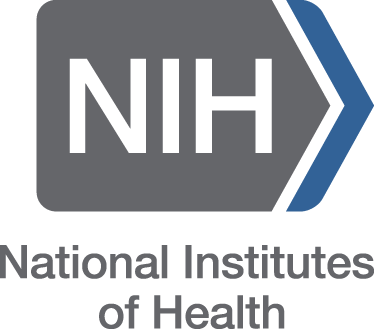 The National Institutes of Health (NIH), a part of the U.S. Department of Health and Human Services, is the nation’s medical research agency — making important discoveries that improve health and save lives. NIH is made up of 27 Institutes and Centers, each with a specific research agenda, often focusing on particular diseases or body systems.
The National Institutes of Health (NIH), a part of the U.S. Department of Health and Human Services, is the nation’s medical research agency — making important discoveries that improve health and save lives. NIH is made up of 27 Institutes and Centers, each with a specific research agenda, often focusing on particular diseases or body systems.
Discover More
The Office of Disease Prevention and Health Promotion (ODPHP), a division of the Department of Health and Human Services, sets national health goals and objectives and supports programs, services, and education activities that improve the health of all Americans. The National Action Plan to Improve Health Literacy and Health Literacy Online are two resources that provide everyone with access to accurate and actionable health information in support of learning and skills to promote good health
Agency for Healthcare Research and Quality (AHRQ) advocates for the patient with resources such as How to Complain and Get Heard and Questions to Ask Your Doctor.
The University of Minnesota Earle E Bakken Center for Spirituality and Health created Taking Charge of Your Health and Wellbeing to provide the general public with accurate and credible information in order to improve and maintain one's health and wellbeing. Navigate the Healthcare System
The American College of Physicians (ACP) Patient Education Center has developed resources to help the patient with navigating the health system. ACP also created the website Healthcare Transparency: Cost of Care Conversations Resources to help clinicians and patients understand the importance of talking about costs of care and to help them efficiently and effectively address the cost of care issues in the clinical setting.
Social Media
Find Health Literacy Month Electronic Bulletin Slides and Social Media promotional materials from the NNLM National Health Observances website.
Library Programs
More than 90 million U.S. adults have low health literacy, which measures the extent to which someone can access necessary health services, as well as how proficiently he or she can understand pertinent health information. Public, school, academic, and special libraries play a key role in making quality health information accessible to all; What role can the public library have during Health Literacy Month or any time of the year?
Libraries Transform
The Network of the National Library of Medicine (NNLM) and The American Library Association (ALA)’s Libraries Transform campaign have partnered to create a free toolkit for raising awareness of how libraries support health literacy in their communities. This toolkit will equip library professionals with customizable tools to promote health literacy in October and throughout the year. Consumer health librarians can also support the direct needs of health information consumers by providing materials that are multilingual, culturally appropriate and easy-to-read, and by developing methods and materials to teach consumers how to evaluate health information resources, especially those found on the Internet.
Key Message(s):
Access to trustworthy information leads to better health outcomes. Numerous studies indicate that individuals with high health literacy are more likely to use preventative care and less likely to be hospitalized. Libraries help by providing access to quality health information for library users of all ages. The National Library of Medicine is one agency that produces resources that are freely available and accessible to everyone. This includes access to general health information for patients, their families, and friends.
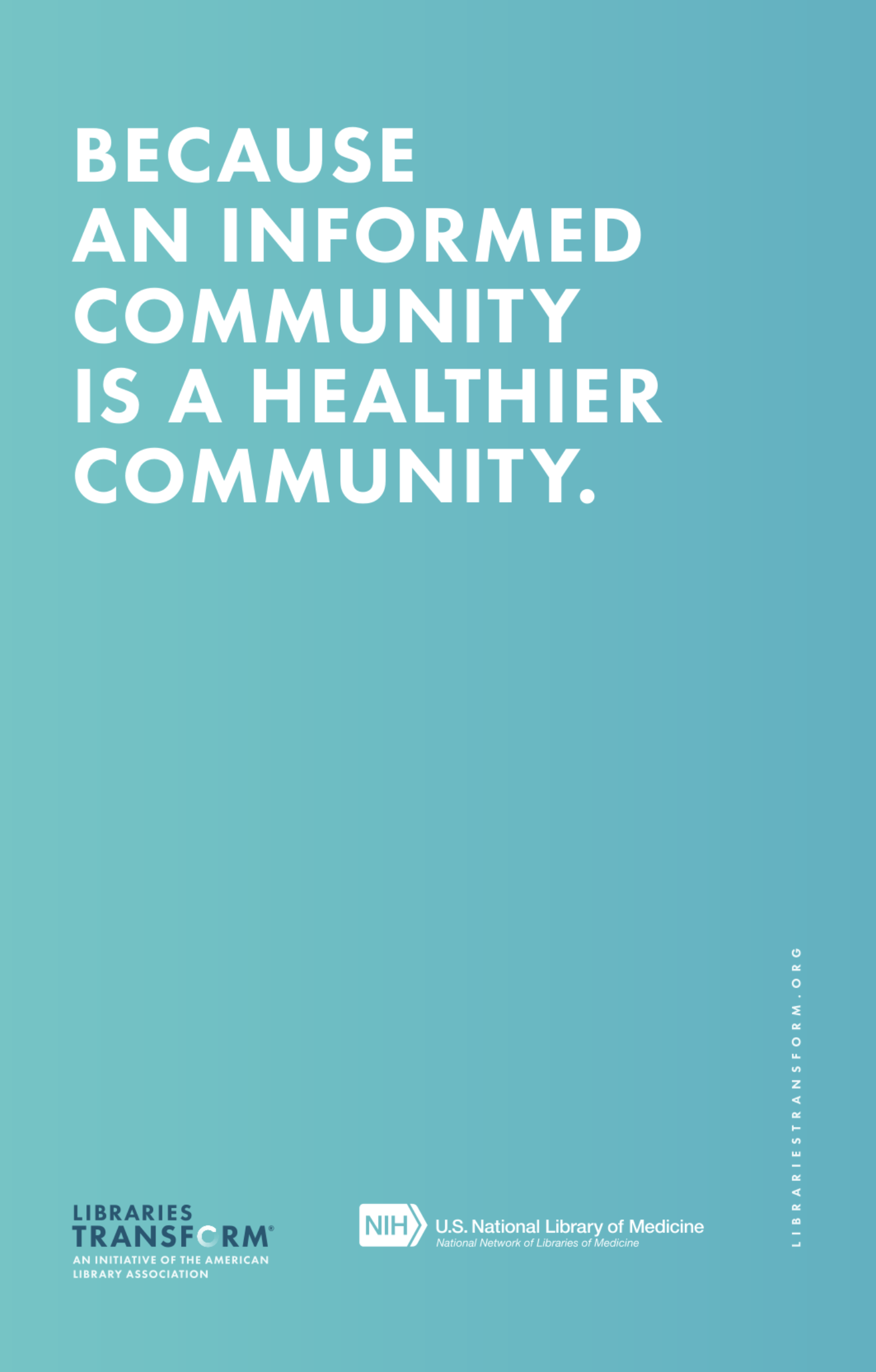
download graphic images
Promotional Use(s)/ Activity Suggestions:
- Use this statement to promote health-related resources, services, and programming at your library — you could use it as a display in your collections, print it as a poster to raise awareness in your community, or share it on social media as part of a digital marketing campaign.
- Partner with local health organizations to bring trusted experts to the library to share best practices and data relating to all kinds of health care topics.
- Libraries could host a family event to have communities discuss what a healthy community looks like to them. There could be a variety of stations with different types of activities to get folks talking and to engage different ages, e.g. a table with building blocks for children to build a healthy neighborhood, or paper and cut-outs of neighborhood buildings where children and families could paste on ways to improve their neighborhood. This could be a hands-on facilitated discussion.
- Libraries could host a community walk from the library with stops at other organizations in the neighborhood. At each stop, there could be a different local agency that has information for community members and a hands-on activity. Along the path, there could be signs with data about the health of their neighborhood gathered from the County Health Rankings website, plus books about health and posters advertising upcoming wellness events. At the end of the walk, have people share their thoughts on the statistics that were shared (the public health department may have more local data and be willing to participate as a potential partner). This could be done through short videos (that could be put on the library and other community websites) or note cards that could then be posted on a bulletin board to capture what the community says.
- Host an NNLM Reading Club book discussion!
Skill Training
The Network of the National Library of Medicine (NNLM) provides in-person and online instruction. Webinars often are recorded for future viewing. Check the NNLM Training page for a complete list of programs and schedules. Effective Health Communication and Health Literacy: Understanding the Connection September 30, 2019
The Centers for Disease Control (CDC) offers Plain Language Materials & Resources to help keep the reader in mind as you make decisions about organization, word choice, and presentation.
Curriculum
Health Literacy Month Handbook: The Event Planning Guide for Health Literacy Advocates from the Institute of Healthcare Advancement is a guide that can be used to create, plan, run, and evaluate events that raise awareness about health literacy. It covers topics ranging from finding people to work with and brainstorming ideas to putting an event together, marketing it, and assessing effectiveness. Throughout the Handbook, you’ll find examples and insights from others who have made Health Literacy Month events happen. Download the handbook from their website.
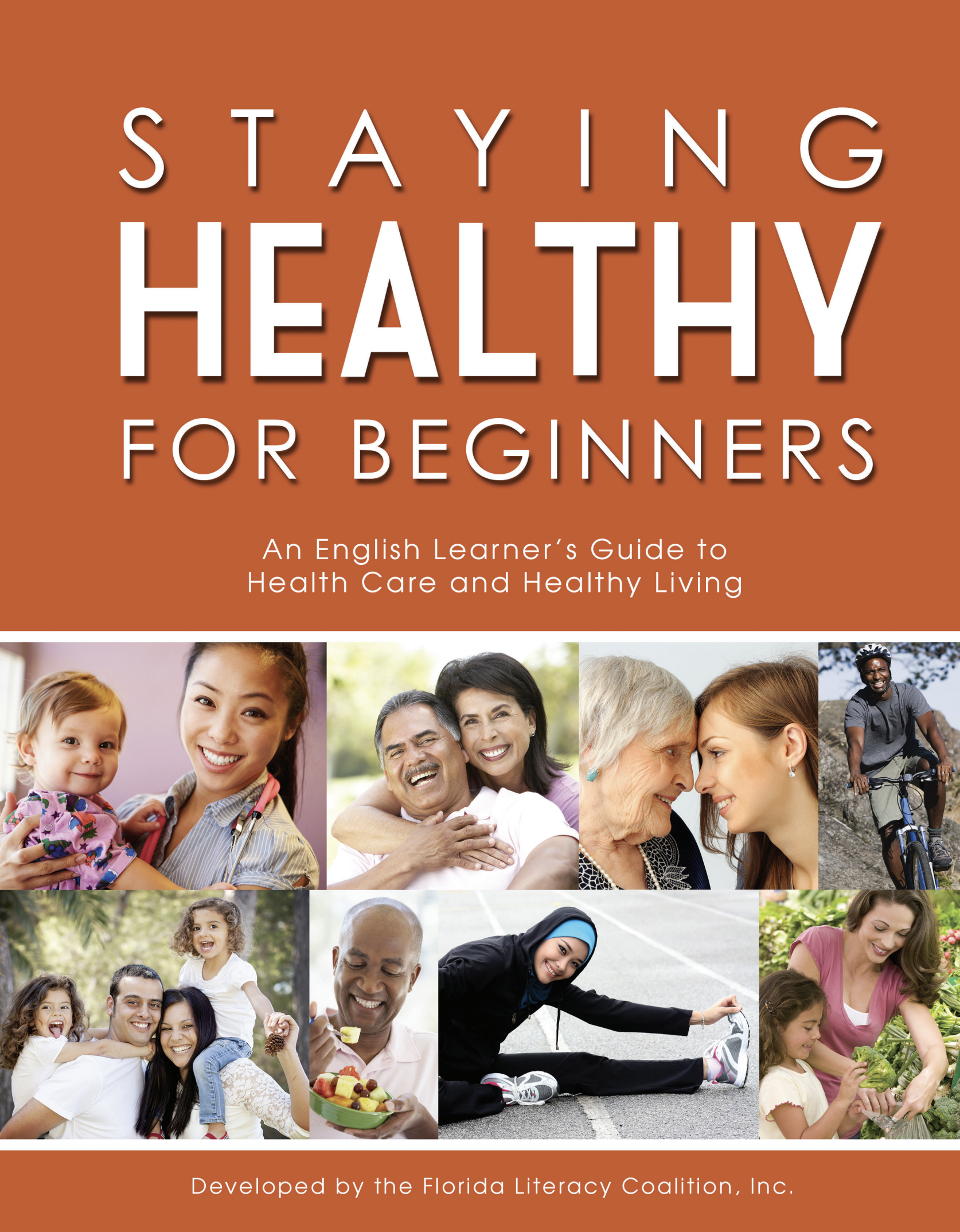
Staying Healthy is an award-winning curriculum available from the Florida Health Literacy Coalition. It is written at a 4th-5th grade reading level and is suitable for low intermediate level ESOL learners and above. The newly-released Staying Healthy for Beginners is written at a lower reading level, making it more accessible to learners at the high beginning level. Order the books
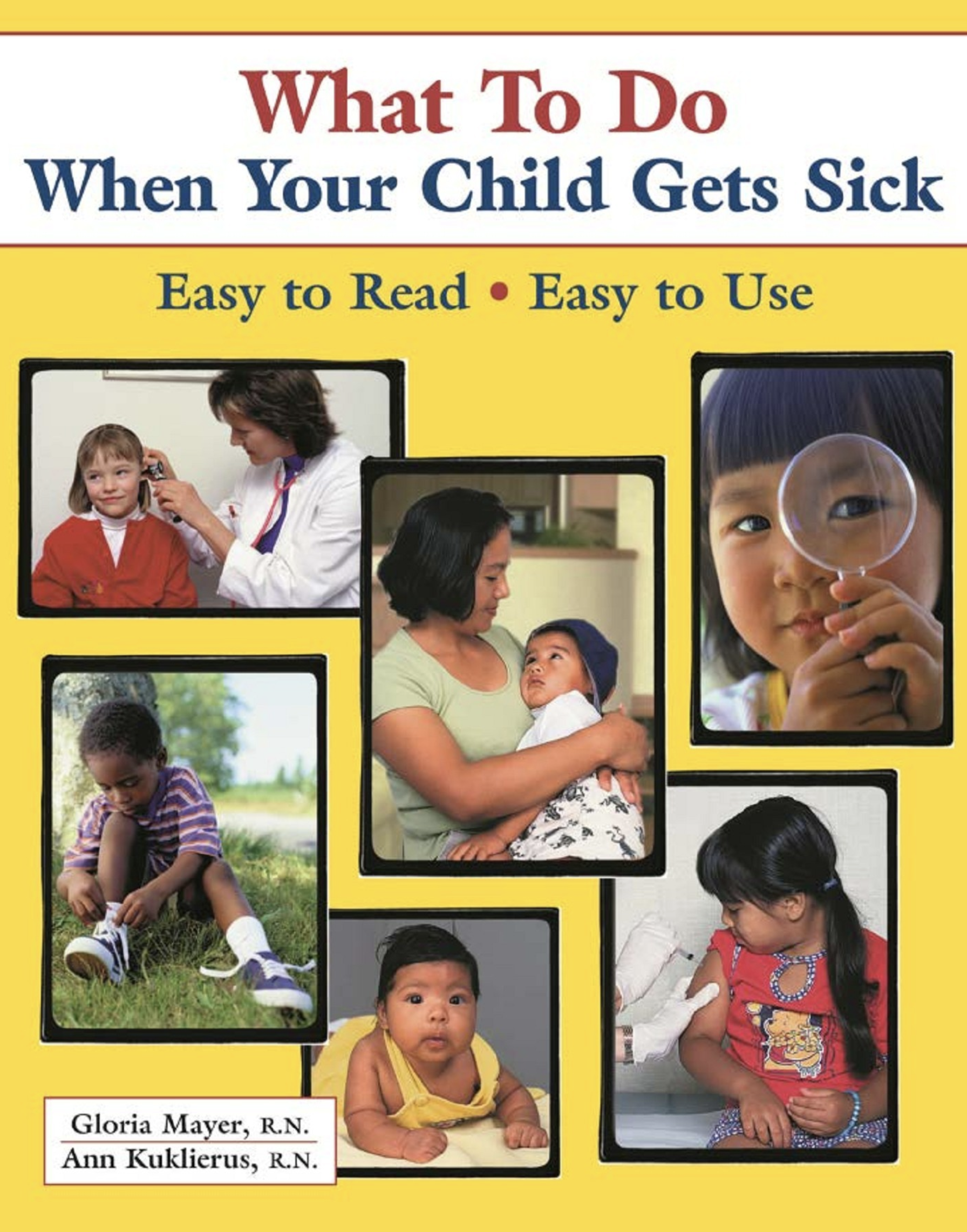
The Institute for Healthcare Advancement (IHA) is dedicated to empowering people to better health. Order their easy-to-read health guide book series in multiple languages with teacher manuals.
Featured Books
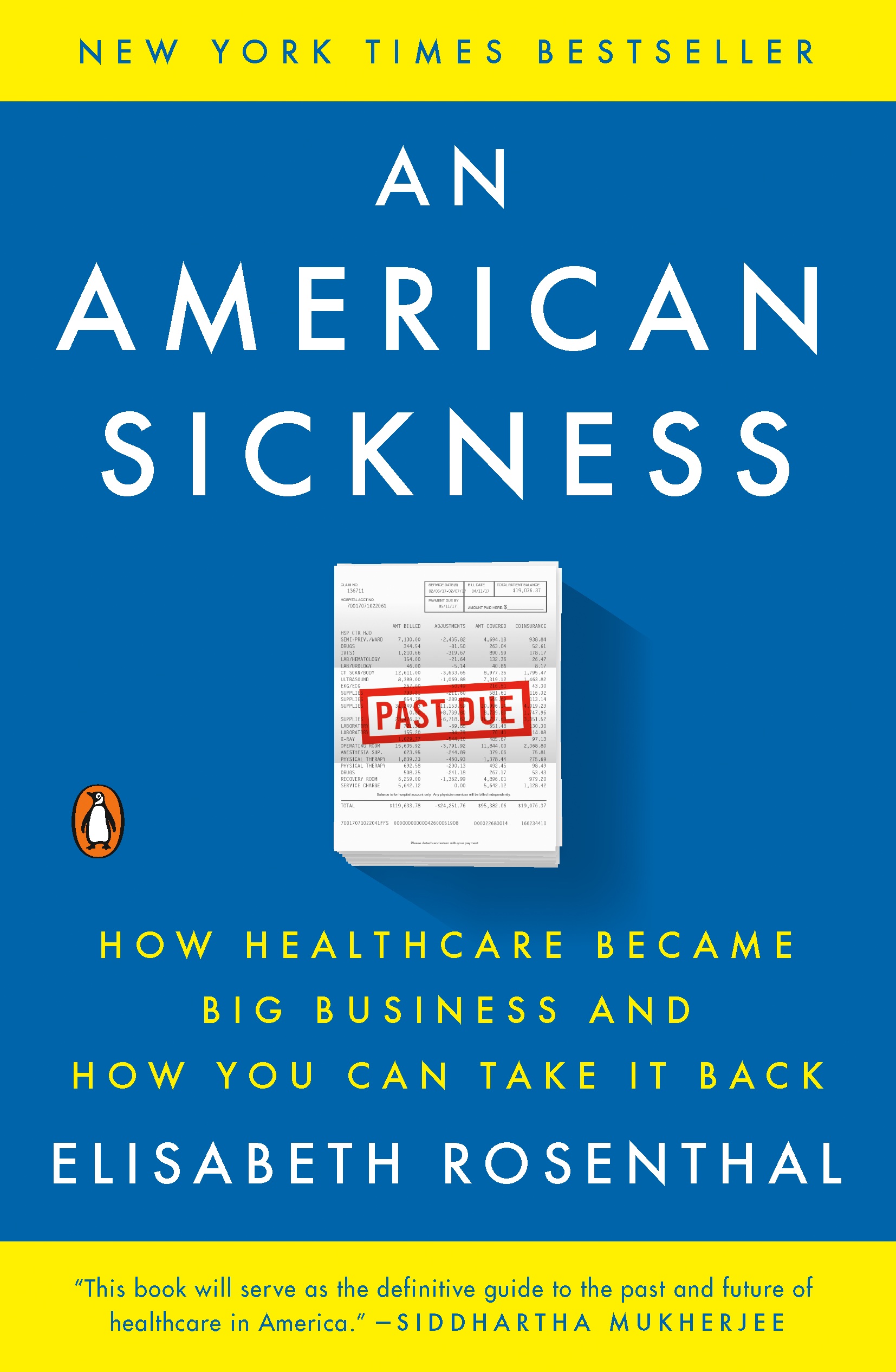
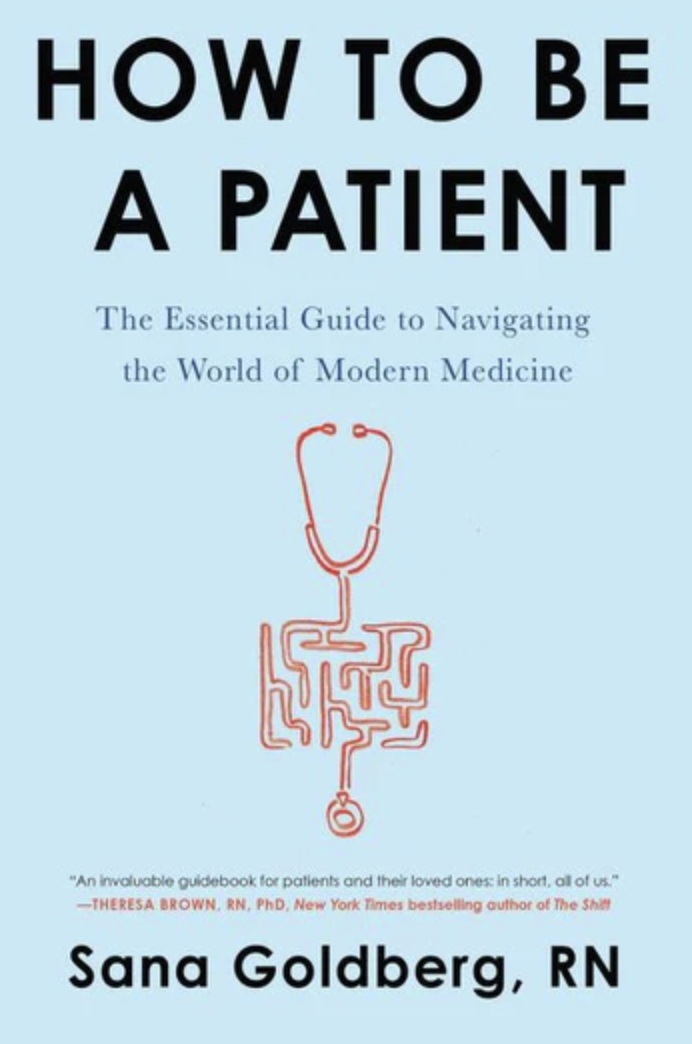
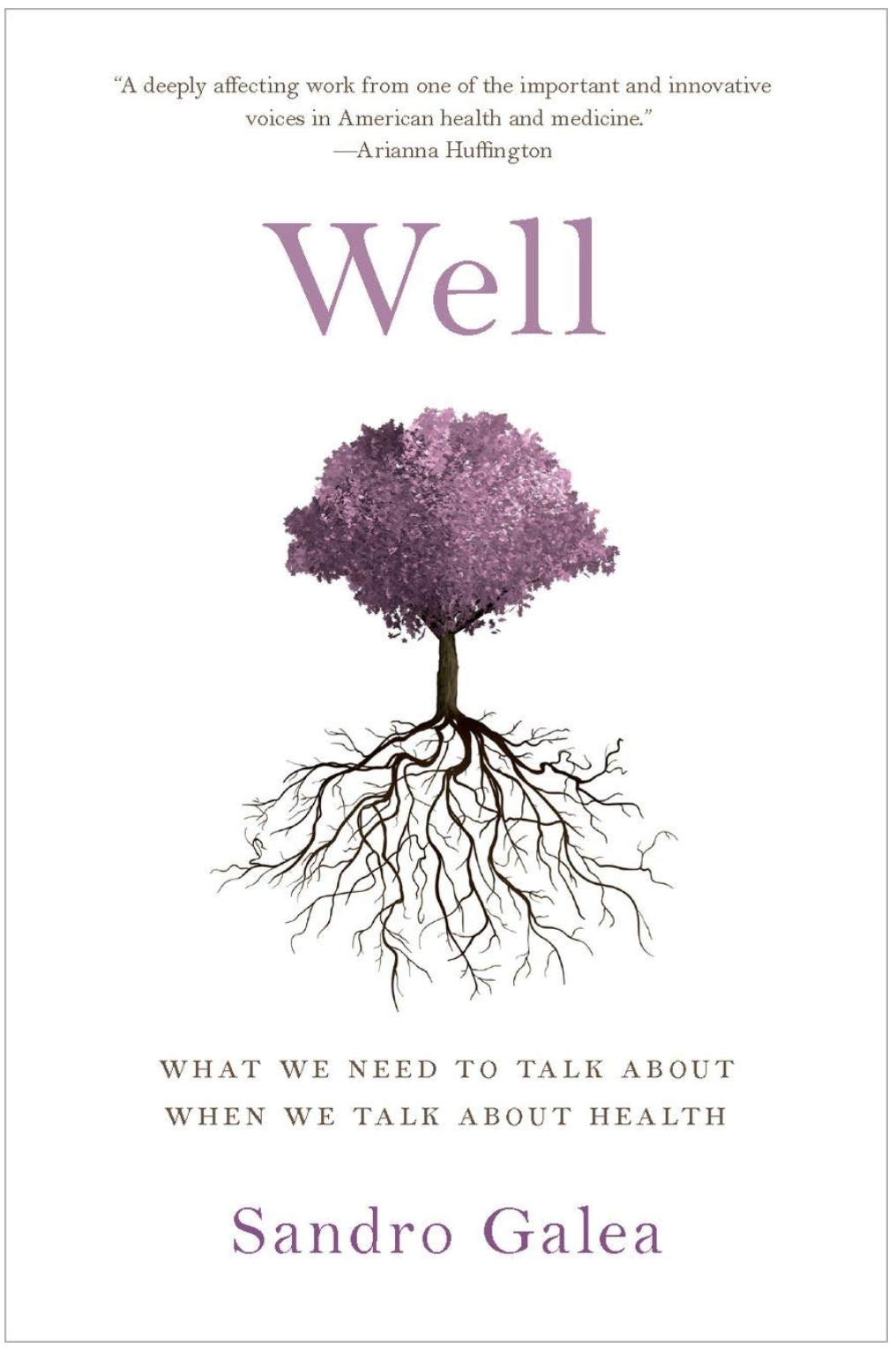
Terms of use: Network of the National Library of Medicine (NNLM) staff offer these health discussion resources for educational use. The materials included do not necessarily reflect the views or opinions of the author, publisher, or the sponsoring agencies of the National Library of Medicine (NLM) and the National Institutes of Health (NIH).

